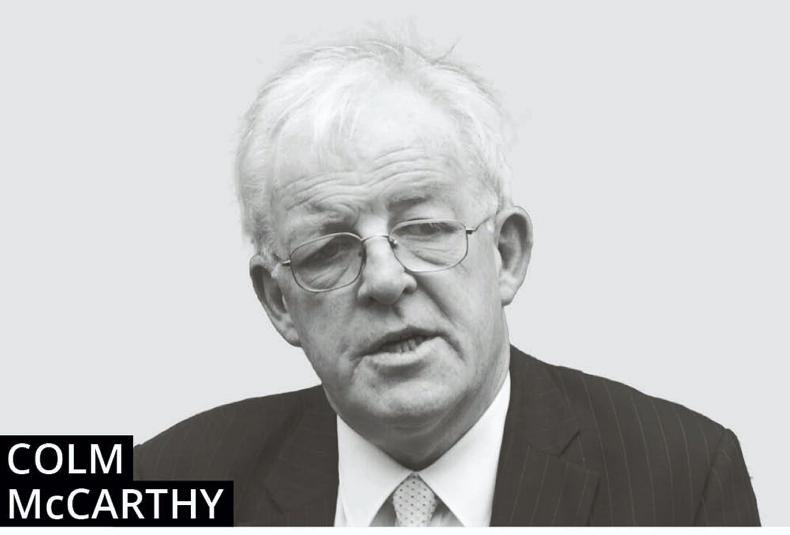The travel industry could be a long-term, as well as a short-term, casualty of the COVID-19 epidemic. Last weekend, the five major airlines in Europe were planning operations at the following levels for the period immediately ahead: British Airways, 5% of normal schedules, easyJet closed entirely, Lufthansa 5%, Ryanair less than 1%, Air France-KLM about 5%.
At this level of operation, these airlines are losing millions per day and risk insolvency at various points in the months ahead unless they can resume normal operations or get re-financed. Some have stronger balance sheets than others, but it is only a matter of time until all run out of cash, sometime next year for the best, a month or two for the weakest. Air France-KLM, British Airways and Lufthansa have sought government support and all three are likely to succeed, perhaps through equity injections or loan guarantees. Ryanair and easyJet have never had state shareholdings but could end up seeking state support too if the crisis is prolonged.
Bail-out
The smaller airlines in Europe (there are, or were, almost 100 in total) are going to the wall one by one. It is unlikely that governments will bail out more than one airline per country, which could mean curtains for the second carriers like Virgin Atlantic in the UK. The scurry to governments for bail-out is reminiscent of the banking crash after 2008, when banks operating internationally became national in distress and Europe could end up with something like the system of national flag carriers that operated 30 years ago. This could be problematic for the truly European carriers which have never had any close links to governments, especially Ryanair, easyJet and Wizz. There has been, as in so many other responses to the crisis, little evidence of a coherent European approach - Alitalia has once again been taken in hand by the Italian government and Norwegian has received aid from the government in Oslo – international in life but Norwegian in death, like the banks.
The bigger airports will be kept open for strategic reasons, but they must have lost 90% of their revenues and will suffer huge losses.
There have been dramatic knock-on impacts on the rest of the aviation industry, especially airports and aircraft leasing companies. Last Monday, Dublin airport saw about 50 scheduled aircraft movements, versus about 400 this time last year. And many of these flights had hardly any passengers – some of the airlines are flying planes with just a handful of seats occupied because they have seen an uptick in cargo volumes in the belly hold. The bigger airports will be kept open for strategic reasons, but they must have lost 90% of their revenues and will suffer huge losses. Several substantial airports have closed altogether, including Paris Orly and London City.
Aircraft leasing companies are essentially banks. They make secured loans to airlines against portable assets, or borrow to buy the aircraft to rent out, but either way their balance sheets contain assets (aircraft, or aircraft as collateral) and piles of debt. When the airlines go down, they cannot meet lease obligations, or they return aircraft that nobody wants. The leasing companies’ balance sheets begin to wobble as liquidity starts to dry up. If the crisis lasts there could be distress in the leasing business, which is bad news for Ireland, since Dublin is Europe’s biggest centre for aircraft finance.
The summer holiday season, traditionally the time when airlines in Europe make money, is already a write-off, even if the COVID-19 epidemic has been halted by that time. Airspace in Greece, Italy, Portugal, Spain and Turkey is already closed as are the resorts and there will be no summer season. If the lockdown drags on into next year, awaiting the arrival of a vaccine to end the nightmare, there might be no summer season next year either.
There are other casualties, including the cruise business, where shiploads of elderly European holidaymakers have ended up infected, marooned and refused entry to ports around the world. The winter skiing resorts in the Alps, especially in northern Italy and Switzerland, are believed to have been important vectors of transmission back into northern Europe in the early stages of the outbreak and it is difficult to see them regain their popularity.
Longer term, many companies have discovered that constant travelling to clients, conferences and trade fairs can be replaced with remote working. There is a serious threat here to both the airline and big-city hotel industries. This is the high margin traffic for both and airlines will not be saved by a bounce-back, whenever it comes, that fills the cheap seats leaving the front of the plane empty.
Ireland is a net importer of tourism, in the sense that Irish residents spend more travelling abroad than foreigners do here, as is true for all northern European countries. But Ireland has a real exposure, through two successful airlines and the leasing business.
Read more
Coherent policy actions needed post-COVID-19
The travel industry could be a long-term, as well as a short-term, casualty of the COVID-19 epidemic. Last weekend, the five major airlines in Europe were planning operations at the following levels for the period immediately ahead: British Airways, 5% of normal schedules, easyJet closed entirely, Lufthansa 5%, Ryanair less than 1%, Air France-KLM about 5%.
At this level of operation, these airlines are losing millions per day and risk insolvency at various points in the months ahead unless they can resume normal operations or get re-financed. Some have stronger balance sheets than others, but it is only a matter of time until all run out of cash, sometime next year for the best, a month or two for the weakest. Air France-KLM, British Airways and Lufthansa have sought government support and all three are likely to succeed, perhaps through equity injections or loan guarantees. Ryanair and easyJet have never had state shareholdings but could end up seeking state support too if the crisis is prolonged.
Bail-out
The smaller airlines in Europe (there are, or were, almost 100 in total) are going to the wall one by one. It is unlikely that governments will bail out more than one airline per country, which could mean curtains for the second carriers like Virgin Atlantic in the UK. The scurry to governments for bail-out is reminiscent of the banking crash after 2008, when banks operating internationally became national in distress and Europe could end up with something like the system of national flag carriers that operated 30 years ago. This could be problematic for the truly European carriers which have never had any close links to governments, especially Ryanair, easyJet and Wizz. There has been, as in so many other responses to the crisis, little evidence of a coherent European approach - Alitalia has once again been taken in hand by the Italian government and Norwegian has received aid from the government in Oslo – international in life but Norwegian in death, like the banks.
The bigger airports will be kept open for strategic reasons, but they must have lost 90% of their revenues and will suffer huge losses.
There have been dramatic knock-on impacts on the rest of the aviation industry, especially airports and aircraft leasing companies. Last Monday, Dublin airport saw about 50 scheduled aircraft movements, versus about 400 this time last year. And many of these flights had hardly any passengers – some of the airlines are flying planes with just a handful of seats occupied because they have seen an uptick in cargo volumes in the belly hold. The bigger airports will be kept open for strategic reasons, but they must have lost 90% of their revenues and will suffer huge losses. Several substantial airports have closed altogether, including Paris Orly and London City.
Aircraft leasing companies are essentially banks. They make secured loans to airlines against portable assets, or borrow to buy the aircraft to rent out, but either way their balance sheets contain assets (aircraft, or aircraft as collateral) and piles of debt. When the airlines go down, they cannot meet lease obligations, or they return aircraft that nobody wants. The leasing companies’ balance sheets begin to wobble as liquidity starts to dry up. If the crisis lasts there could be distress in the leasing business, which is bad news for Ireland, since Dublin is Europe’s biggest centre for aircraft finance.
The summer holiday season, traditionally the time when airlines in Europe make money, is already a write-off, even if the COVID-19 epidemic has been halted by that time. Airspace in Greece, Italy, Portugal, Spain and Turkey is already closed as are the resorts and there will be no summer season. If the lockdown drags on into next year, awaiting the arrival of a vaccine to end the nightmare, there might be no summer season next year either.
There are other casualties, including the cruise business, where shiploads of elderly European holidaymakers have ended up infected, marooned and refused entry to ports around the world. The winter skiing resorts in the Alps, especially in northern Italy and Switzerland, are believed to have been important vectors of transmission back into northern Europe in the early stages of the outbreak and it is difficult to see them regain their popularity.
Longer term, many companies have discovered that constant travelling to clients, conferences and trade fairs can be replaced with remote working. There is a serious threat here to both the airline and big-city hotel industries. This is the high margin traffic for both and airlines will not be saved by a bounce-back, whenever it comes, that fills the cheap seats leaving the front of the plane empty.
Ireland is a net importer of tourism, in the sense that Irish residents spend more travelling abroad than foreigners do here, as is true for all northern European countries. But Ireland has a real exposure, through two successful airlines and the leasing business.
Read more
Coherent policy actions needed post-COVID-19






 This is a subscriber-only article
This is a subscriber-only article









SHARING OPTIONS: